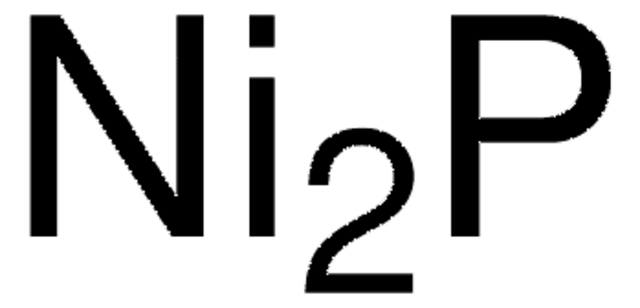283622
Nickel(II) hydroxide
Synonym(s):
Nickel dihydroxide, Nickelous hydroxide
About This Item
Recommended Products
grade
reference material
Quality Level
form
powder
concentration
60.0-70.0% Ni (EDTA titration)
mp
230 °C (lit.)
density
4.1 g/mL (lit.)
application(s)
battery manufacturing
SMILES string
O[Ni]O
InChI
1S/Ni.2H2O/h;2*1H2/q+2;;/p-2
InChI key
BFDHFSHZJLFAMC-UHFFFAOYSA-L
Looking for similar products? Visit Product Comparison Guide
Application
Signal Word
Danger
Hazard Statements
Precautionary Statements
Hazard Classifications
Acute Tox. 4 Inhalation - Acute Tox. 4 Oral - Aquatic Acute 1 - Aquatic Chronic 1 - Carc. 1A Inhalation - Muta. 2 - Repr. 1B - Resp. Sens. 1 - Skin Irrit. 2 - Skin Sens. 1 - STOT RE 1 Inhalation
Target Organs
Lungs
Storage Class Code
6.1D - Non-combustible acute toxic Cat.3 / toxic hazardous materials or hazardous materials causing chronic effects
WGK
WGK 3
Flash Point(F)
Not applicable
Flash Point(C)
Not applicable
Personal Protective Equipment
Choose from one of the most recent versions:
Already Own This Product?
Find documentation for the products that you have recently purchased in the Document Library.
Customers Also Viewed
Articles
Lithium-ion batteries' characteristics make them popular for electricity storage due to portability, rechargeability, and low cost.
The prevailing strategies for heat and electric-power production that rely on fossil and fission fuels are having a negative impact on the environment and on our living conditions.
Plasmonic nanoparticles have unique optical properties that can be tailored to suit a variety of applications in the biotechnology1–8 and electronics9–16 industries.
Our team of scientists has experience in all areas of research including Life Science, Material Science, Chemical Synthesis, Chromatography, Analytical and many others.
Contact Technical Service














